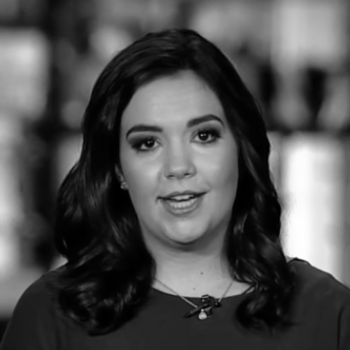Law prof doesn't buy Trump-Russia 'collusion' narrative. Here's why...
George Washington University professor Jonathan Turley took a multi-pronged approach to discrediting the Trump/Russia collusion narrative.
Featured in national headlines day to day, the President's tweets also factored into the professor's argument.
A George Washington University professor recently lobbed some bombs at President Donald Trump and Russia collusion narrative, suggesting that the Kremlin would never trust someone who tweets like the President.
GWU law school professor Jonathan Turley recently published an op-ed in The Hill calling the theory “incoherent.”
“With the approaching final report from special counsel Robert Mueller, it may be useful to consider the current state of the collusion case,” Jonathan Turley, the Shapiro Professor of Public Interest Law at George Washington University, in Washington, D.C. wrote.
The op-ed came just days before Trump blasted Congress’ “partisan investigation” during his State of the Union address on Tuesday. Congress’ investigations into possible collusion between the Trump campaign and Russia are separate from the special counsel’s investigation, which the president calls a “witch hunt.”
[RELATED: Prof who praised ‘Black English’ claims Trump’s typos make him unfit for office]
“First, there is the question of why Russian intelligence would tell the notoriously unpredictable and impulsive Donald Trump about one of its riskiest international operations in decades,” Turley argued. “Russian spymasters are not known for putting entire operations, or the future of Russian foreign relations for that matter, just one tweet away from utter destruction.”
In addition to claiming that Russia would never have trusted a guy who tweets like Trump, Turley took several other approaches to discredit the Trump/Russia collusion theory.
“If there was such collusion, why were Trump associates like Roger Stone or Alexander Nix, who led consulting company Cambridge Analytica that worked for the Trump campaign, seeking contacts with access to the information?” the professor asked.
”Even Trump associates like Michael Cohen, who actively sought contacts with Russians about business in Moscow, also seemed to get nowhere. Indeed, Cohen had to try to contact aides to Vladimir Putin through public mailboxes on the internet. Like the Trump Tower meeting, the efforts made by Cohen during the campaign had failed miserably.”
Turley also claimed that even Mueller’s indictments have nothing to do with collusion.
“While Mueller certainly can add charges, his indictment of Stone was based on overlapping false statements from a transcript that he only recently obtained from Congress. It does not include any collusion crimes investigated over the last two years. Indeed, Mueller does not confirm a meeting, let alone collusion, between Stone and WikiLeaks.”
[RELATED: Harvard law prof: Trump’s Russian hack ‘jokes’ could constitute ‘treason’]
“The simplest explanation still remains most likely,” Turley concludes. “The Trump campaign, like virtually every reporter and political operative in Washington, wanted to see the WikiLeaks material and any dirt on the Clintons, just as the Clinton campaign paid for any dirt on Trump. The Russian efforts to influence our elections also is neither novel nor new.”
Turley did not respond to a request for further comment.
“As a conservative student on campus, I’m pleasantly surprised that someone in a traditionally leftist field, academia, is willing to counter the traditional leftist narrative on the Russia investigation,” Shep Gerszberg, a member of the GW College Republicans, told Campus Reform. “But honestly, it’s sad that I need to be pleasantly surprised by this sort of thing.”
”There is an ongoing investigation and until we know all the facts anyone condemning Trump for unproven crimes and calling for immediate impeachment is jumping the gun and seriously undermining our criminal justice system,” he continued, “and anyone saying that Trump is 100 percent completely innocent is also jumping the gun and ignoring bits of evidence.”
Follow the author of this article on Twitter: @abigailmarone

